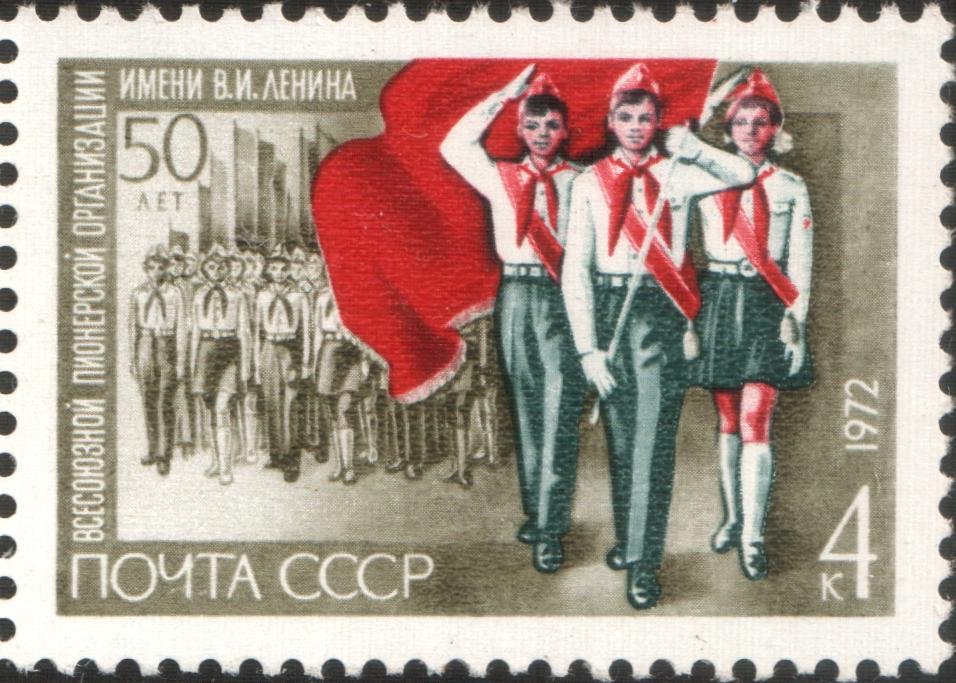The Vladimir Lenin All-Union Pioneer Organization (Russian: Всесою́зная пионе́рская организа́ция и́мени В. И. Ле́нина, tr.Vsesoyúznaya pionérskaya organizátsiya ímeni V. I. Lénina, IPA: [fsʲɪsɐjˈuznəjə pʲɪɐnʲˈerskəjə ɐrɡənʲɪˈzatsɨjə ˈimʲɪnʲɪ vɛ i lʲˈenʲɪnə] (listen), lit. ‘The All-Union Pioneer Organization named after V. I. Lenin’), abbreviated as the Young Pioneers, was a mass youth organization of the Soviet Union for children and young adults aged age 9–15 that existed between 1922 and 1991. Similar to the Scouting organisations of the Western Bloc, Pioneers learned skills of social cooperation and attended publicly funded summer camps.
The main goals and duties of Young Pioneers and requirements of membership were specified by the Regulations of the Young Pioneer organization of the Soviet Union; by the Solemn Promise (given by each Young Pioneer joining the organization); by the Rules of the Young Pioneers; and by the Young Pioneer Motto, всегда готов! (vsegda gotov!, “Always Ready!”). There were two major revisions of them: in 1967 and 1986.Illustration of the recruitment of a female pioneer
The main symbols of Young Pioneers were the red banner, flag, Young Pioneer’s red neck scarf and the organizational badge. Attributes: the bugle, the drum, the organizational uniform (with badges of rank). Some rituals and traditions of the organization were: the Young Pioneer salute, Young Pioneer parade, color guard duty and flag raising. Most common traditions were the Young Pioneers rally (usually round a bonfire, similar to Scout Jamborees) and festivals.

How to tie a pioneer neck scarf 
Pioneer neck scarf

Although membership was theoretically optional, almost all the children in the Soviet Union belonged to the organization; it was a natural part of growing up. Still, joining was not automatic. In the 3rd grade of school, children were allowed to join the Young Pioneer Organization, which was done in batches, as a solemn ceremony, often in a Pioneers Palace. Only the best students were allowed into the first batch, slightly less advanced and well-behaved were allowed into the second batch, several weeks later.
The most ill-behaved or low-performing students were given time to ‘catch up’ and could be allowed to join only in the 4th grade, a year after the first batch of their classmates. Not being admitted at all was odd, and lack of desire to join was considered suspicious.
…






